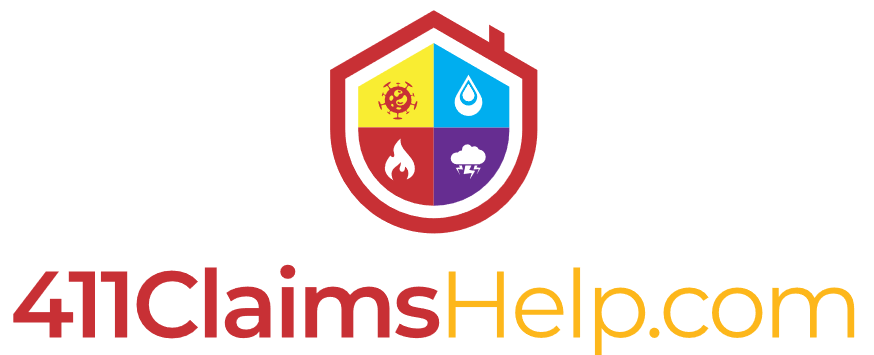How to Pay for a New Roof Through Insurance, Loans, and Grants

Introduction: Understanding How to Pay for a New Roof
Replacing a roof is one of the most significant — and expensive — home maintenance projects a property owner may face. Whether your roof has been damaged by a storm, aged out of service, or failed suddenly, figuring out how to pay for a new roof can be overwhelming. Luckily, homeowners and property managers have several options, from insurance claims and government grants to loans and contractor financing. This guide explains everything you need to know about affording a roof replacement — even how to pay for a roof with no money upfront.
Insurance: The First Step Toward Affordable Roof Replacement
When roof damage results from storms, fire, or other covered perils, insurance is often the most cost-effective route.
Will Insurance Pay for a New Roof?
Homeowners insurance typically covers roof replacement if the damage was caused by a covered event (like hail or hurricane). The challenge is knowing how to get insurance to pay for roof replacement in Florida and other states with strict claim guidelines.
Steps to Take:
- Document the damage immediately with photos or videos.
- Call your insurance provider to start a claim.
- Schedule a visit with an adjuster to assess the damage.
- Hire a public adjuster (like 411 Claims Help) to negotiate a fair payout if needed.
Pro Tip: If you’re wondering how much does State Farm pay for a new roof, know that most insurers reimburse based on roof age and policy terms. Replacement Cost Value (RCV) policies pay more than Actual Cash Value (ACV) policies.
Understanding Deductibles: Can You Avoid Paying One?
Many homeowners ask, how to get a new roof without paying a deductible. In most cases, paying the deductible is mandatory — it’s illegal in many states for contractors to waive it. However, some assistance programs or payment plans may ease this burden.
Exceptions Where Deductibles Might Be Minimized:
- State-run assistance programs
- FEMA aid after disasters
- Low-income homeowner grants
Important: Always consult your insurance provider or a public adjuster before assuming you can bypass a deductible.
Loans & Financing: Options When Insurance Isn’t Enough
If insurance won’t cover your roof, or you don’t have a policy, loans can offer a fast, structured way to finance the project.
Top Financing Methods:
- Home Equity Loans (HELOC): Low-interest option using your home as collateral.
- Personal Loans: Fast approval but higher interest rates.
- Roofing Contractor Financing: Many companies now offer zero- or low-interest plans.
- Government-Backed Loans: FHA Title I loans can be used for roof replacement.
If you’re wondering, how can I pay for a new roof without cash, these options can help you spread the cost over time — even if you’re starting with zero dollars in hand.
Grants and Assistance: Free Money for Roof Replacement
Many federal, state, and local programs offer financial assistance for home repairs — especially for seniors, low-income families, and disaster victims.
Popular Roof Grant Programs:
- HUD’s Home Repair Programs
- USDA Rural Development Grants
- FEMA Disaster Assistance
- Local energy-efficiency incentive programs
For Property Managers: If you’re asking, do property management companies pay up front for roof replacement? — the answer depends on the agreement with the property owner and the management budget. In many cases, managers can arrange for emergency repair loans or use reserve funds for urgent replacement.
Choosing the Right Contractor: Budget Meets Quality
Choosing a licensed and insured roofing contractor is critical. While tempting, don’t go with the cheapest option — a poorly installed roof could cost more down the line.
What to Ask Before Hiring:
- Are you licensed and insured in Florida?
- Do you offer financing?
- Can you help with insurance claims?
- What warranties do you provide?
For help finding trusted experts, Hire a Roof Contractor in your area.
Comparing All Options: What’s Right for You?
Here’s a simplified breakdown based on your financial situation:
| Financial Status | Best Option |
| Have insurance | File a claim (with help from a public adjuster) |
| Low income | Apply for state or federal grants |
| No savings | Seek contractor financing or personal loans |
| Property manager | Use reserve funds or schedule phased financing |
Each path has pros and cons. But knowing how to pay for roof replacement — and when to ask for help — gives you more control and confidence.

CTA Section: Get Help From Roof Claim Experts
Need help navigating your options or starting a roof insurance claim?
Let the experts handle it for you.
411 Claims Help — Public Adjusters Who Fight for You
Hire a Roof Contractor — Pre-vetted Professionals Ready to Start Work
FAQ: Schema-Ready Q&A
Q: How can I pay for a new roof if I don’t have the money?
A: You can explore financing options like personal loans, contractor financing, or government-backed loans. Some grants may also be available depending on your location and income.
Q: Will insurance cover the full cost of roof replacement?
A: It depends on your policy. If you have Replacement Cost Coverage and your roof damage is covered, insurance may cover most or all of the cost, minus the deductible.
Q: Do property management companies pay up front for roof replacement?
A: Typically, property managers use owner reserves or emergency funds. Upfront payment depends on management agreements and available budgets.
Q: How do I get insurance to pay for roof replacement in Florida?
A: File a claim with thorough documentation, hire a public adjuster if needed, and ensure the damage falls under a covered peril like wind or hail.
Q: Can I get a new roof without paying a deductible?
A: Most policies require the deductible to be paid. However, disaster relief or special grant programs may help cover or offset it.
Q: What’s the best loan option to pay for a roof?
A: Home equity loans offer low interest if you have equity. Otherwise, consider personal loans or contractor-provided financing.
Conclusion: Plan Smart, Act Fast
Roof replacement doesn’t have to be a financial burden. Whether through insurance, grants, or flexible loans, there are multiple ways to secure a safe, durable roof over your head. The key is acting quickly, understanding your options, and getting expert help when needed.



